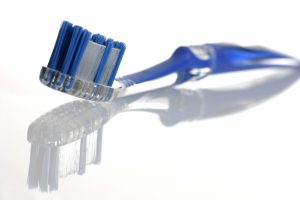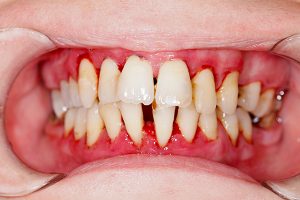
You know it’s important to brush your teeth, and hopefully, you’re doing your best to floss daily as well, but have you ever wondered what would happen if you stopped caring for your teeth altogether? The answer is nothing good, and it may even lead to life-threatening consequences. Our dentist in Las Vegas encourages all our patients to come in for bi-annual dental exams, and some may benefit from three cleanings a year if they have crooked or crowded teeth.
These are just a few aspects of your oral health and the overall health of your body that will suffer when you stop brushing:
1. Tooth Decay
Cavities, or tooth decay, could set in very quickly, as your mouth depends on consistent brushing and flossing to remove food particles and bacteria from the surface of your teeth. The bacteria will become plaque, which could solidify into tartar. Untreated cavities are a severe problem and jeopardize every aspect of your teeth. The cavity will eat away at your tooth until there’s a small hole. This hole will continue to grow and can easily become infected (abscessed) considering all the other bacteria throwing an unencumbered party in your mouth. A tooth abscess is dangerous. You’ll need a root canal or risk losing the tooth completely. Both of which are costly and require follow-up treatment such as a crown or dental implant.
2. Tooth Discoloration & Enamel Erosion
If you drink a lot of wine, coffee, tea, or other drinks that cause tooth stains, you’re going to face tooth discoloration sooner or later. Most tooth stains are superficial (extrinsic) and can be easily dealt with before they get worse through rinsing with water after drinking stain-inducing fluids, brushing after each meal, and regular dental cleanings at our Las Vegas office. But, when you neglect your teeth completely, these stains will continue to grow, making them harder to deal with in the future.
Additionally, many people are prone to intrinsic stains which go further than your enamel and impact your dentin (inner tooth layer)—These are difficult to treat as they’re caused by certain antibiotics, too much fluoride, tooth trauma, and other reasons. Intrinsic stains can be gray, amber, purple, or yellow.
The shiny, translucent outer layer of your teeth known as your enamel will erode the longer you go without brushing or flossing. Your enamel is responsible for protecting you from temperature fluctuations and chemicals. When you drink acidic beverages such as fruit drinks or soda without rinsing with water or brushing, your enamel will erode, making your teeth more susceptible to chips and cracks as well.
No dental hygiene will make your teeth sensitive to certain foods and cause stubborn tooth stains, which could be permanent.
3. Gum Disease
Gum disease is rampant among adults. The first stage is easily reversible, but failure to brush your teeth creates the best environment for gum disease to flourish. There are three phases of gum disease:
- Gingivitis: As plaque builds up along your gum line, the tissues become irritated, and your lack of brushing will only fuel the inflammation caused by gingivitis. This stage is when people often notice bleeding while brushing or flossing.
- Periodontitis: Plaque continues to grow at your gum line and causes pockets to form where bacteria and food are trapped. You’ll notice more inflammation and irritation, and your teeth may appear longer as the gum tissue pulls away from your teeth.
- Advanced Periodontitis: During this final stage of gum disease, the connective fibers and gum tissue separate further and cause your teeth to shift or loosen. Your bite will be affected, and even your jaw bone will suffer because bacterial toxins will weaken your bone tissue. You may lose one or more teeth due to the loss of support. You’ll have bad breath and may even have pus around your gums.
The last two stages of gum disease can only be addressed with gum treatment through a dentist and may not be reversible, so it’s important you brush and floss to avoid periodontitis.
4. Tooth Loss & Bone Recession

After your teeth have shifted or loosened due to severe periodontitis, you’ll likely lose at least one tooth, and a missing tooth can cause a host of other problems. The main issue is your jaw bone. Without the stimulation and pressure from the missing tooth, your bone will recede and lose volume. In just one year, your jaw bone will lose 25 percent of bone width, which means you’re more likely to lose additional teeth, especially if you’re still not brushing or flossing. Dental implants are an efficient way to replace missing teeth, and they look just like your natural teeth.
5. Increased Risk of Heart Disease
Perhaps the most detrimental aspect of no brushing or flossing is the link researchers have found between oral health and heart disease. While the research is still largely circumstantial, it’s believed that the inflammatory response and tissue damage during the stages of gum disease allow bacteria to enter the bloodstream and cause more inflammation in your body. Inflammation harms blood vessels. Research has found that the common bacteria found in a mouth with gum disease can spread to your heart. Conversely, when a patient had a healthy mouth, researchers found less of the bacteria in the heart.
Take Better Care of Your Mouth
The consequences of not brushing your teeth we’ve listed can arise very quickly in some people, while others may not develop cavities, gum disease or the subsequent problems at all—You can bet that their breath is far from minty-fresh, though. Your social life and career will suffer, and you’ll end up with higher bills from the dentist than if you took care of your teeth daily and stuck to bi-annual dental exams and cleaning.
Schedule your dental exam with our dentist in Las Vegas today at (702) 445-7075. Drs. Chin serve clients in Las Vegas, Henderson, and Summerlin, Nevada.
